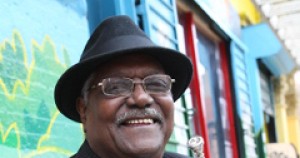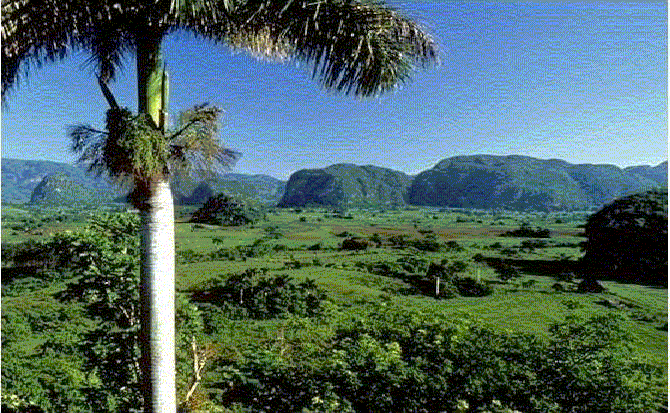A GOODBYE TO THE GREAT MUSICIAN ALFREDO “CHOCOLATE” ARMENTEROS.
The legendary Cuban trumpeter Alfredo “Chocolate” Armenteros, died Wednesday in New York at age 87, leaving a memorable career spanning more than six decades, Latin American news media reported.
“I want to be remembered as the trumpeter who played longer and also enjoyed the most,” he said in an interview published by the Colombian newspaper El Tiempo in 2008.
Armenteros, who was rated the Louis Armstrong Latin, appeared in more than 70 countries and shared the stage with figures like Arsenio Rodriguez, Machito, Beny More, Israel Cachao Lopez, Eddie Palmieri, Dizzy Gillespie and Nat King Cole.
Was “a gentleman, a professional, excellent running his instrument, fast and lapidary wit,” the Panamanian musician Ruben Blades said in a message. “His improvisations, full of Cuban inimitable sense, were applauded and copied but not matched”.
“An excellent musician, another irreplaceable moving to another neighborhood,” added Blades. “Our respect and admiration forever.”
Chocolate Armenteros was born on April 4, 1928 in Las Villas. In 1950 he joined the group of Arsenio Rodriguez, with whom he recorded songs like “debt”, “I have to forget”, “I am your destiny,” “I’ll be back to life” and “Life is a dream,” among others.
In 1953 he played with the Sonora Matancera and that same year he accompanied his cousin Benny Moré in the foundation of his band in the studios of the CMQ.
In November 1958 he traveled to New York with the Orchestra of Fajardo y sus Estrellas, to entertain a private dance at the Waldorf Astoria Hotel, hired by the campaign of presidential candidate young Johnn F. Kennedy. In that city he settled permanently.
In 1963 he was hired by the Orchestra of Machito (Frank Grillo) and early seventies band worked with Eddie Palmieri.
In 1975 he was part of the production Stars Tico Alegre, with Javier Vasquez, La Lupe, Tito Puente, Vicentico Valdes, Vitín Aviles, the Joe Cuba Sextet, Ismael Rivera and Cachimbos, Yayo El Indio, Hector Rivera, Cachao, and other . From 1977 to 1980 he returned to play with the Sonora Matancera
Later, he founded his own group, with which he toured worldwide and recorded Chocolate says (1982), Chocolate sextet (1983) Chocolate Starfish (1987).
Until the past 80 years, Armenteros was active in concerts, festivals and artistic projects.
As he explained in an interview with El Nuevo Herald in August 2013, his nickname came from a confusion.
Film The Lost City.
“A girl mistook me for the boxer Kid Chocolate was me and then that name,” he said.
Armenteros is considered one of the greatest trumpet players born in Cuba.
“Alfredo Chocolate Armenteros is the most innovative Cuban and trumpets instead of all that could house New York,” wrote the historian César Miguel Rondón.
Trumpet “is my girlfriend; it is my soul, my life, my heart,” said the musician himself.
Agencies / DDC / Internet Photos / YouTube / TheCubanHistory.com
The Cuban History, Hollywood.
Arnoldo Varona, Editor.
UN ADIÓS PARA EL GRAN MÚSICO ALFREDO “CHOCOLATE” ARMENTEROS.
El legendario trompetista cubano Alfredo Chocolate Armenteros, murió este miércoles en Nueva York a los 87 años de edad, dejando una memorable carrera de más de seis décadas, informaron medios de prensa latinoamericanos.
“Quiero ser recordado como el trompetista que tocó más tiempo y el que más gozó también”, había dicho en una entrevista publicada por el diario colombiano El Tiempo en 2008.
Armenteros, quien fue calificado como el Louis Armstrong latino, se presentó en más de 70 países y compartió escenarios con figuras como Arsenio Rodríguez, Machito, Benny Moré, Israel López Cachao, Eddie Palmieri, Dizzy Gillespie y Nat King Cole.
Era “un caballero, un profesional, excelente ejecutando su instrumento y de ingenio rápido y lapidario”, dijo en un mensaje el músico panameño Rubén Blades. “Sus improvisaciones, llenas del inimitable sentido cubano, fueron aplaudidas y copiadas pero no igualadas”.
“Un músico excelente, otro irremplazable que se muda al otro barrio”, añadió Blades. “Nuestro respeto y admiración, siempre”.
Chocolate Armenteros nació el 4 de abril de 1928 en Las Villas. En 1950 se unió al conjunto de Arsenio Rodríguez, con el que grabó piezas como “Deuda”, “Tengo que olvidarte”, “Soy tu destino”, “Vuelvo a la vida” y “La vida es un sueño”, entre otras.
En 1953 tocó con la Sonora Matancera y ese mismo año acompañó a su primo Benny Moré en la fundación de su banda en los estudios de la CMQ.
En noviembre de 1958 viajó a Nueva York con la Orquesta de Fajardo y sus Estrellas, para amenizar un baile privado en el Hotel Waldorf Astoria, contratado por la campaña del joven candidato a la presidencia Johnn F. Kennedy. En esa ciudad se instaló definitivamente.
En 1963 fue contratado por la Orquesta de Machito (Frank Grillo) y a principios de los setenta trabajó con la banda de Eddie Palmieri.
En 1975 formó parte de la producción Estrellas Tico Alegre, con Javier Vásquez, La Lupe, Tito Puente, Vicentico Valdés, Vitín Avilés, el Sexteto de Joe Cuba, Ismael Rivera y sus Cachimbos, Yayo El Indio, Héctor Rivera, Cachao, y otros. De 1977 hasta 1980 volvió a tocar con la Sonora Matancera
Más tarde, fundó su propio grupo, con el que realizó giras por todo el mundo y grabó Chocolate dice (1982), Chocolate en Sexteto (1983), Estrellas de Chocolate (1987).
Hasta pasados los 80 años de edad, Armenteros se mantuvo activo en conciertos, festivales y proyectos artísticos.
Según explicó en una entrevista con El Nuevo Herald en agosto de 2013, su apodo venía de una confusión.
Trompetista en la Pelicula “The Lost City”.
“Una muchacha me confundió con el boxeador Kid Chocolate y luego se me quedó ese nombre”, dijo.
Armenteros es considerado uno de los más grandes trompetistas nacidos en Cuba.
“Alfredo Chocolate Armenteros es la más cubana y a la vez innovadora de todas las trompetas que pudiera albergar Nueva York”, escribió el historiador César Miguel Rondón.
La trompeta “es mi novia; es mi alma, mi vida, mi corazón”, dijo el propio músico.
Agencies/DDC/Internet Photos/YouTube/TheCubanHistory.com
The Cuban History, Hollywood.
Arnoldo Varona, Editor.






